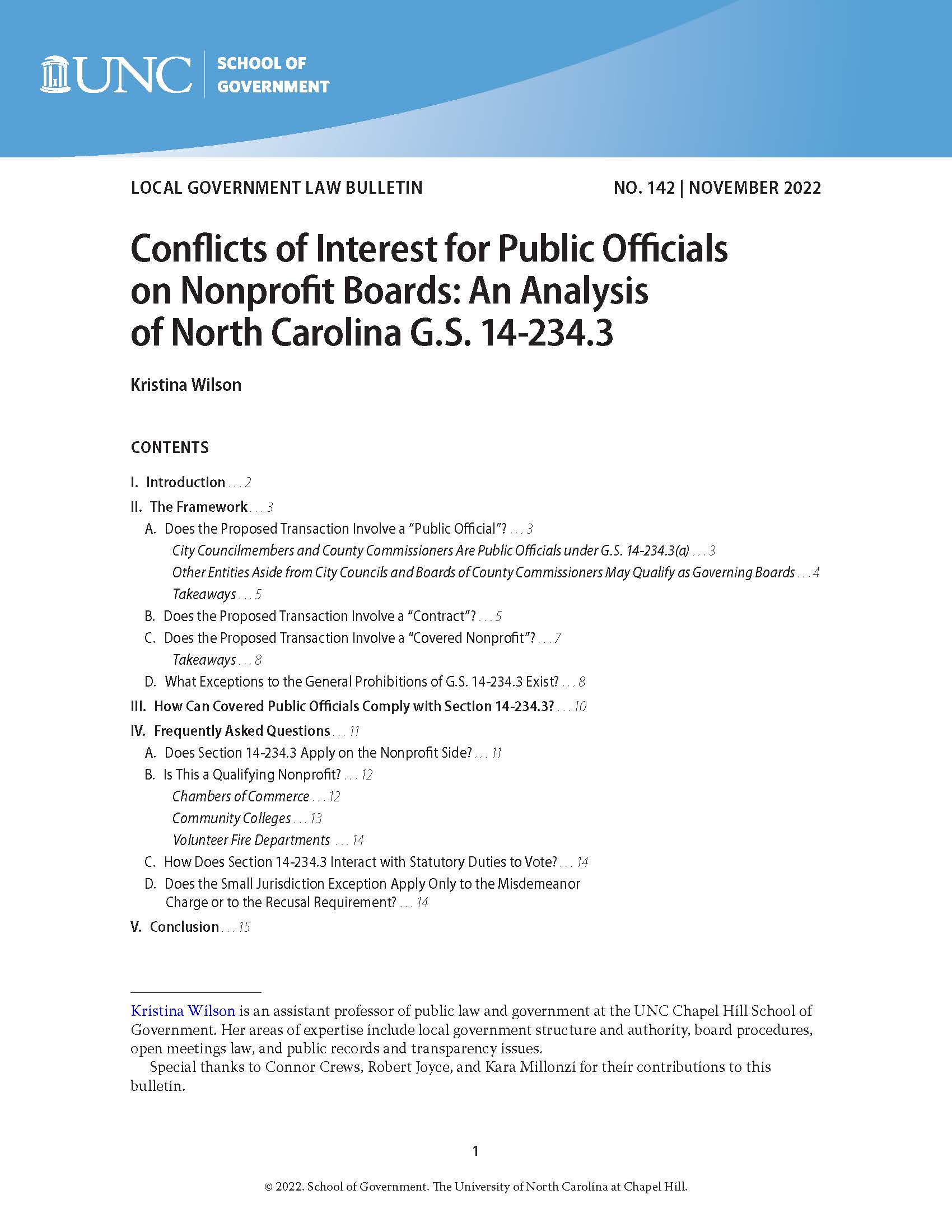Local Government Law Bulletin #142
Conflicts of Interest for Public Officials on Nonprofit Boards: An Analysis for North Carolina G.S. 14-234.3
Section 14-234(a)(1) of the General Statutes prohibits “public officers”and “employees” from deriving a “direct benefit” from the contracts they “make or administer” on behalf of the units they serve. Public officers and employees derive a “direct benefit” from a contract when either they or their spouse own more than a ten percent interest in an entity under contract, acquire income under the contract, or acquire property under the contract. Public officials and employees “make or administer” a contract when the board, public body, or agency that they serve acts on the contract, even when conflicted public officials and employees recuse themselves from any involvement in the contract’s creation or administration. When a contract directly benefits a public official or employee, not only must the official or employee recuse him or herself from involvement in the approval or administration of the contract, but the official’s or employee’s board, public body, or agency also cannot enter into the contract unless an exception applies.
In December of 2021, the General Assembly enacted a companion section to G.S. 14-234(a)(1) in Session Law 2021-191 (S.B. 473). The new law, Section 14-234.3, creates an additional conflict of interestfor contracts between units of local government and non-profit organizations. In particular, Section 14-234.3 prohibits “public officials” who also serve as directors, officers, or governing board members of non-profit organizations from participating in making or administering any contracts between those nonprofits and the public entities that they serve. When a governing board of a political subdivision of the state considers a contract with a nonprofit, including any award of money, board members in certain leadership positionsat that nonprofit must recuse from any involvement and record their recusal with the clerk. Because knowingly violating these provisions is a Class 1 misdemeanor, local government officials are understandably concerned with the scope and application of G.S. § 14-234.3.
This bulletin offers a framework for practitioners as they analyze potential conflicts arising under Section 14-234.3. It also addresses some of the most frequently asked questions about the law.




